|
I am part of a feminist book club at my secondary school in Oxfordshire, which has been running for many years, giving students at our school a voice in a world beset by patriarchy. Within the club we discuss feminist books, poems, and societal issues surrounding women and other marginalised groups - along with current political affairs. At the start of this year, we were asked to discuss issues in our society which were important to us and landed on the topic of period poverty and the normalisation of menstruation.
After talking about the problems of period poverty in wider society, we focused on how it affected students. We discovered through our conversations that there were a lot of problems within school which deeply affect students on their periods. Many students who menstruate won’t come into school during their periods due to not having the sanitary products to make them feel comfortable during that time. This is clearly a problem as we want everyone to have the equal right to come to school. The students within the book club who have periods also talked about how problematic our period product placement is around school as they are situated at our reception which is unfortunately located at the very front of the school and if you’re on the other side of school, it’s inconvenient. We wanted to tackle this issue within our school and decided to create gender neutral period product bags to make period products more accessible. We created them to be gender neutral as many transgender and non-binary students within our group expressed their discomfort with overtly feminine period packaging and we didn’t want anybody to feel physically, let alone emotionally, uncomfortable during their periods. There is at least one period bag within each department, with the department heads being the designated people to ask if anyone needs a sanitary product. We wanted to create a bag for each department so our period bags would be accessible to everyone anywhere in school. In each bag we included some pads and tampons to suit each individual's preferences. The bags were created by students in our group, as well as other art and textiles students, during after-school hours. Now, instead of having to awkwardly run to the other side of the school to get a period product, there are many easily accessible bags dotted around every area of our school. Posters are also being created to make people aware of the change and we’re planning to place these around school detailing the locations of the period bags so everyone can be informed. We wanted to go further with our project and researched how period poverty affects people outside of schools as well. One of our students discovered Monica Lennon’s period bill in Scotland and we were inspired to work towards supporting a similar bill within England. We have reached out to Ms Lennon and asked about what we could do as students to begin this change. We’re also aiming to put in measures to make period products accessible outside of term time and trying to find a way to make period products more eco-friendly as we’re aware of the pollution and plastic is pumped into our oceans and planet.
2 Comments
Legal scholar Navinya Nitin Kamble writes on the menstrual rights development movement in India and his hopes for the future. Menstruation is a matter of guilt and is considered as a taboo subject in Sanatana Dharma, especially known as Hinduism or Hindu Dharma and women are prohibited from participating in daily household activities while menstruating. Women are debarred from entering in kitchen during this period. They believe the menstruation cycle will turn good food into bad food due to its smell and spread out. However, this problem can be prevented with due menstrual care. They are not allowed to enter temples during this period. They are considered unclean and unhygienic subjects in the human society during their menstruation cycle. Hindu religious scriptures i.e. Rig Veda argue in favour of this and support it by enumerating that women have taken the guilt of Indra upon their shoulders of killing a Brahmana Demon (Rakshas). Killing him was a sin and this sin of Indra was distributed amongst Earth, Sea, Trees, and Women. Hence, these religious scriptures consider women “impure”. Even though it is proven on scientific grounds that the menstrual cycle prepares women’s body for pregnancy and causes a period if they are not pregnant. Hormones like estrogen and progesterone control it. During the cycle, eggs in ovaries mature, and the uterus lining thickens. If the egg is fertilized, it can implant in the uterus lining. Ovulation happens when one ovary releases a mature egg. If pregnancy doesn't occur, the uterus lining breaks down, and that turns into a period. In the modern enlightened world, menstruation is a matter of human rights and every menstruator is entitled to human rights. Not only women, but also the trans-menstruators are also equally entitled to these menstruation rights. It is time to outlaw these religious scriptures which don’t treat women during menstruation as human and solely discriminative against them on their biological structure keeping them away from their freedom and other basic rights. Working women and trans-menstruators should be given paid menstruation leaves during their periods. Not only that, but also hygiene products labelled as “Trans-Hygiene” should also be manufactured and equally be given importance as being given to “Women-Hygiene Products”. Due to this, trans-menstruators will not feel discriminated against in the society and they can use their own Trans-hygiene products during the menstruation cycle. These hygiene products should be made free to the menstruators. It is in the interest of a state like India to enact a valid formulated law as the “Menstrual Benefits Law” governing the menstruation aspect of women and trans-menstruators equally. It is the duty of the state to also include provisions like paid menstruation leaves for employed menstruators while allowing them to work remotely through the help of technological advancements, a special care should also be observed while manufacturing women’s and trans-menstruators “hygiene products”. Ignorantly manufacturing these products can lead to the loss of life of menstruators by infection or due to any other cause. Whereas, these products should be labelled differently for women and trans-menstruators for their usage. The state should also impose heavy fines and liability on those who breach these laws. Healthcare facilities governing menstruation should also be established and made free to every individual for its use because ignorance of this subject can lead to the loss of life of menstruators. Menstrual education should be imparted into children, at an appropriate age, in their educational institutions. The state should do whatever it can to secure the human rights of all menstruators, because menstruators are human and not an unhygienic, unclean, impure-sinful subjects.” Navinya Nitin Kamble is an advocate from India and University of Mumbai graduate. He later pursued his Master of Law (LL.M.) specializing in Criminal Law from Amity University, Maharashtra, where he was awarded a gold medal for his excellent academic performance. Currently, he is pursuing his second LL.M. degree at The University of Edinburgh, where he is doing his research on Outer Space Laws. He has also worked as a law faculty at the University of Mumbai Law Academy, teaching Labour and Industrial Laws.
 The Period Products (Free Provision) (Scotland) Act 2021 has been in force for over a year – it does not, however, extend to ensuring hospitals and GP surgeries have period products available for staff and patient use when and where they may be needed. Here at BMA Scotland our campaign, #BMAPeriods, aim is to ensure all healthcare workers in NHS Scotland have access to period products when they need them, where they need them. All geographical NHS Boards have committed to providing period products for staff – but many have not provided timelines for this. We conducted a survey of BMA members earlier this year to gauge where we are with provision of period products at the point of use. We had 193 responses across all health boards, and 71.5% of respondents worked in secondary care settings. Take-homes from the survey were:
The free text comments told a few stories too – here are a few in italics, alongside my reflections on them: Are management staff receptive? “It’s such a taboo subject still with stigma attached- “your period your problem”. I particularly wouldn’t want to bring this up to a male manager either. But I would like the availability of period products.” “Management currently focussed on trying to safely staff the hospital unfortunately.” “Your period, your problem” sums up the approach we have had to take when managing periods at work. It’s completely understandable that this has also allowed the perpetuation of a general lack of acknowledgement around periods in the workplace and the challenges they can bring. If NHS Boards arrange for universal placement of products and set an expectation they will be available when needed just like we expect toilet paper to be available where and when we need it, individual managers wont have to spend time ensuring products are provided – we know they have incredibly important service delivery issues to focus on already. The BMA is virtue signalling – we should provide our own products. “I don’t think professionals in regular employment should be expecting free sanitary products. From a personal perspective, my salary is above average and I would be embarrassed at the thought of expecting the government to subsidise something I can clearly afford.” “I don’t agree that this is a priority. Frankly it’s virtue signalling.” “This is hardly a priority. Women have been getting tampons/ towels from their colleagues since the dawn of time. And we are technically adults.” “I think that most responsible women can manage their periods and that maybe the BMA should be spending time fighting for decent pay which ensures that doctors can buy their own sanitary products. I’m not comfortable paying for my union to carry out progressively left wing and irrelevant, distracting projects when there are much larger and more pressing issues for physicians in the profession.” “It is not a responsibility of an employer, and I would not entertain providing such. The BMA is seriously misguided in this matter.” Virtue signalling may be defined as ‘the expression of a conspicuous, self-righteous moral viewpoint with the intent of communicating good character: we don’t believe that #BMAPeriods is a campaign based on virtue signalling, but rather a campaign borne from an as-yet unmet need. The BMA has long campaigned heavily for basic facilities for doctors working in hospitals – access to hot food, minimal standards for on call rooms, and less exhausting working patterns and better pay. These are all duties of a trade union. Campaigning for provision of period products to all doctors who may need them isn’t self-righteous virtue signalling, nor is it left wing, irrelevant or distracting. If you have never had to work a nightshift stuffing toilet paper in your underwear as often as you can, knowing you are likely to bleed through anyway and hoping the blood wont smell too strongly in handover – well you’re lucky, but this shouldn’t come down to luck. We are adults, it’s true, and it’s great that we can try and get hold of period products from colleagues if we can. But doctors, particularly doctors in training, work day and nightshifts when they may not know anyone well enough to ask and may never be able to get products from their bags. In these circumstances it doesn’t matter how much you earn, as there are no shops or dispensing machines open out of hours and you can’t stuff your vagina with ten-pound notes to stop yourself bleeding over your clothes no matter how healthy your bank balance. The #BMAPeriods campaign has a lot of work still to do. We still do not have reliable provision of period products in NHS healthcare facilities. We also have work to do to break the menstrual taboo, including the perception that periods are purely a personal problem to be dealt with by the person experiencing them – the solution involves all of us accepting that period provision is not optional, but essential. Dr Rosie Baruah Three years ago today, the Scottish Parliament passed the Period Products (Free Provision) (Scotland) Bill. Thank you to all the campaigners and organisations from all over the world that made this world-leading legislation possible. I am eternally grateful. This year, I marked Global Period Day by delivering a keynote speech at a menstrual justice salon, organised by Professor Marcy L. Karin.
The Period Products (Free Provision) (Scotland) Act which came into legal effect in 2021 ensures that free products are available to anyone who needs them, including schools, colleges, and universities. There is so much to celebrate for Scotland when it comes to menstrual justice- I continue to be inspired by the dedicated campaigners and activists who made the Period Product Act a reality and continue to fight for equal opportunities for those who menstruate. In 2016 when I was first elected and began asking the Scottish Government questions about period product affordability and now other world leaders are using us as a framework. The Period Products Act means that nobody has to be held back in life simply because they menstruate. Period products are a necessity and must be free and accessible for all if we are to have a fair society. But we must challenge the stigma that continues to surround menstruation if we want to make a real impact. This begins with talking about periods in the classroom, around the dinner table, and in the pub. Scotland is the first country in the world to provide free products, and this should be celebrated. It is now time to continue the fight for menstrual justice by ensuring that young people see menstruation as a normal fact of life and not something embarrassing or shameful. After a busy week in Parliament, it was uplifting to spend time with so many like-minded individuals and to hear about the ongoing work being done globally to achieve period equity. This weekend, I had the privilege of delivering a talk in the famous Cambridge University Debating Chamber to share my experience of introducing the Period Products (Free Provision) (Scotland) Act.
It was my pleasure to share this bucket-list moment with Cambridge Union members, many of whom are also avid period poverty campaigners. The panel was a great chance to shine a light on the world-leading work that Scotland has undertaken in moving closer to achieving gender equality and I am always incredibly proud of the progress that period dignity campaigners from across the UK are achieving. Just a few days ahead of International Women’s Day, it was heart-warming to be sat on a panel with so many inspiring women who are fully committed to eradicating period poverty. I would like to thank the student representatives at Cambridge Union for kindly inviting and accommodating me and allowing me to share my insights. It is a memory I will forever cherish. 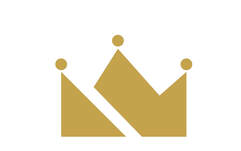 Crown Her is an Non-governmental Organisation dedicated to the legislative change for the provision of at least one free menstrual product for all women of reproductive age in Trinidad and Tobago. We have been working closely with other NGOs including the Supermarket Association of Trinidad and Tobago, The Rotary Clubs of District 7030, the Trinidad and Tobago Medical Association and the various Business Chambers as well as the Attorney General’s office and the Ministry of Health in Trinidad and Tobago. Our academic study on 'Assessing Period Poverty in Trinidad and Tobago' was recently published in the International Journal of Medical Science and Discovery. The findings show that 76% of the sample of 504 women (18-48 years) did not believe that period products are affordable and that 51% reported that they struggled to obtain period products. Furthermore, 55% indicated that they had to borrow or change their current brand of period product and 51% revealed that they had to improvise or use alternative products such as toilet paper, napkins, and paper towels. The vast majority of the women also reported that their workplace and schools did not provide them with sanitary products and 99% believe that they should provide them with these products. Although all menstrual products in our country are tax exempted, period poverty still exists which was made worse by the COVID-19 pandemic. Any support to our cause will be greatly appreciated. Link to full study: https://medscidiscovery.com/index.php/msd/article/view/861 Links to Crown Her's Facebook: Crown Her Trinidad and Tobago | Facebook  Sanitree is a social enterprise looking to tackle period poverty and the social stigma surrounding menstruation in a sustainable, collaborative and ethical way. There is a massive wealth and geographical divide in terms of using safe and hygienic sanitary products; a basic human right which should be afforded to all menstruating people equally. We envision menstruation becoming an experience that is both empowering for all, and kind to the planet. Our social enterprise works in two locations, Jaipur and Edinburgh. Jaipur is home to our Her Shakti Centre, where a team of 7 local women are employed to produce our reusable cloth pads. The Her Sakti Centre was founded by our director Ishu from the Jeevan Arth Foundation, and it is more than just a workspace; holding weekly self-defence, yoga and English language classes run by locals. Our beneficiaries can therefore empower themselves and their community in a space that is dedicated to their ventures. The centre is the beating heart of our enterprise, and it is where we aim to break down menstruation taboos through education and awareness training. Edinburgh is our UK base, where the 18 members of the student-led Sanitree team from 3 different countries attend university together. It is here that we organise most of our fundraising to support the production and activities in the Her Shakti Centre. We host events for the student community throughout the year to raise funds and awareness of the project, as well as working with political and community stakeholders, organising campaigns raising awareness of period stigma. We are currently breaking into the UK market with our pads to further subsidise the cost of our pads in Jaipur and help to fund other Jaipur ventures. Through both locations, Jaipur and Edinburgh, Sanitree is committed to helping solve the issue of period poverty. Studies show that 64% of women in India don’t use period products, but unhygienic alternatives instead, such as old rags and socks. There have even been reports of the use of rice husk ash, a type of agricultural waste. Inadequate education is one of the most pervasive factors perpetuating period poverty in India today: 71% of adolescent girls in India are unaware of menstruation until they experience it themselves. Education is a vital tool for stimulating public conversations about periods; when menstruators cannot learn about their reproductive health, it pushes the conversation into a place of shame, reinforcing a culture created by the patriarchal view that periods are dirty and polluting. This culture ultimately affects people of all genders, as it stigmatises the vital biological process which is the origin of all life. Period poverty is a crucial issue to solve, having detrimental long-term effects. For the 87 million women and girls in India who live in poverty, using unhygienic methods of period care is often the only option, a practice which forces 23 million girls to drop out of school every year. Devastatingly, this is most likely to occur at the average age of the onset of puberty. Without education, girls are twice as likely to marry during childhood and face life-threatening risks from early pregnancy. Furthermore, they are less likely to have access to opportunities which will help them break the cycle of poverty, and challenge the cultures and institutions that taught them to feel shame about their bodies. We take a holistic approach to the issue, considering the full health, social, economic, and political landscape that affects access to menstrual health education and period products. Our innovative solution to this problem is rooted in our handmade, reusable and biodegradable period pad, made from one layer of organic brushed cotton, 4 layers of ultra-absorbent organic cotton and one waterproof Polyurethane (PUL) layer. Our pads are manufactured by women from vulnerable backgrounds and provide a creative solution to period poverty and advocacy for a healthier planet while economically empowering local communities. All our materials are environmentally and economically sustainable, locally sourced from independent suppliers who share our vision and values. Organic cotton is estimated to be grown using around 91% less water than non-organic cotton. It is also chemical free which means it is not harmful when it biodegrades, a process taking only 5 months, so it can efficiently return its nutrients back into the soil. PUL is a heat-bonded laminate with polyester fabric, ensuring the pad’s leak-proof credentials and extending its durability. It is also low in toxicity, allowing it to biodegrade safely. On its current trajectory, the fashion industry will use up ¼ of the world's carbon budget by 2050 and, globally, less than 1% of clothes are recycled. To address this, the Sanitree pad pouches are made from textile offcuts (160kg to date) from local factories which otherwise would go to waste. Whilst we sell our pads to conscious consumers, our focus is centred on donation drives supported by local partner NGOs in India, which have been running regularly since the centre opened in 2019. There is a significant stigma surrounding menstrual cups and tampons across the country, and therefore pads enable greater cultural sensitivity and accessibility. They also provide a much more economical way for charities to make a longer-lasting impact without undermining climate justice. This is essential as the Global South is already experiencing some of the most devastating effects of the climate crisis. We distribute our pads to menstruators in schools, workplaces and communities alongside educational sessions, that both illustrate how to use and clean the pads as well as breaking down some of the pervasive period stigmas. Our aim is to create conversations about menstruation, by sharing experiences in a safe environment, cultivating trust and understanding. We lead sessions with both boys and girls together as we feel this approach tackles the shame and stigma at the root. We have received overwhelmingly positive feedback, for example with Chankhasi School in Malawi where most of the 30 girls' attendance rates increased and their confidence in the school environment excelled. We believe this intersectional approach is the only way to ensure long-term period dignity. Sanitree’s future is bright. We have just celebrated our 5th birthday and are already planning ahead for the next 5 years; continuing to run our educational sessions, as well as working towards becoming a vendor for the UN where our period dignity kits would be sent to refugee camps all over the world. Hopefully, sometime in the future, we can even supply our kits to the Scottish government! There are exciting things in store for Sanitree. Written by Erin Stratton and Lula Ashdown This month, a new report has been published by Days for Girls International and New Perimeter highlighting the scope of menstrual health across 12 countries. The report analyses various laws and policies that impact menstrual health within education.
Here is a excerpt from Scotland's review, which Monica Lennon was delighted to contribute to: "Recognized as a country within the United Kingdom’s territories, Scotland became the first country to pass legislation in November 2020 that would provide period products for free in public places. Members of the Scottish Parliament unanimously approved the Period Products (Free Provision) (Scotland) Act 2021 (hereinafter, the “Act”), mandating that local authorities provide tampons and pads to “anyone who needs to use them” in public places. Legal duties were not attached to the Act, however, until August 15, 2022, when the law enshrined that councils and education providers would be legally required to make period products available free of charge, enabling access in community centers, pharmacies, youth clubs and other public places." You can read the report here: Advancing-Menstrual-Health-Education-and-Economic-Progress.pdf (newperimeter.com)  What role can sustainable period products play in tackling period poverty? Scotland’s game changing Free Period Products bill is a major step towards eradicating period poverty in Scotland. Should our next goal be planet-friendly periods for all? Periods and the environment Each of us uses around 11,000 disposable periods products in our menstruating life. As you can imagine, this number comes with a huge environmental impact. Disposable tampons and pads are the most commonly used period products and are known to contain up to 90% plastic. According to a UN-sponsored report, 49 billion single-use period products are used every year in the EU alone. Most of them end up in landfill, or worse: in our oceans and waterways. Despite increasing awareness of the impact of disposables, 1.5 billion period products are still flushed down the toilet in the UK every year. The toxic trio of period poverty Period poverty is caused by a ‘toxic trio’: the cost of products, a lack of period education, and stigma around periods. Providing free period products to those in need is an important step towards period dignity for all. But we can’t ignore the other two culprits. We need to talk about periods Decades of misinformation and period shaming (even by some period product brands!) mean that menstruation is still considered taboo by many. As a pioneering ethical period brand, smashing that taboo has been a major objective for us. When we first started in 2002, people just weren't publicly talking about periods. We wanted to support people in making informed decisions about the products they were using. And in order to evaluate choices and habits, that silence around periods needed to change. We are so proud that our work has brought sustainable menstrual products to the mainstream, but let’s not kid ourselves, the period taboo lives on. Free period products have been fairly widely available in many places, such as schools for years, but the unspoken nature of this very natural bodily function has stopped the information from reaching those in need. We need stigma-free period education If we believe in a culture and environment that supports girls, women and people with periods, we need frank and stigma-busting menstrual health education. Research has shown that young people feel the education they receive focuses too much on just the biological elements of menstruation. Anyone with periods knows that menstruation involves so much more than knowing your ‘follicular’ from your ‘luteinising phase’! Young people want to learn about the embodied experience of periods, like cramps and hormonal changes, as well as how to deal with them. The best way to debunk these taboos is to encourage an open dialogue and unashamedly talk about these topics. Period education should include discussion about our society’s and media’s attitude towards periods too. Having seen a gap in current education resources available for educators, we recently launched a free Period Education pack for primary and secondary school teachers in the UK. It’s been developed by Mooncup together with menstrual and sexual health experts. The pack is designed to be a curriculum-related, inclusive, and stigma-busting resource, and it includes many opportunities for discussion about our society’s attitude towards periods. Sometimes reusable period products are not the answer Mooncup® supporters often reach out to us as they are keen to explore whether Mooncup could be an answer to period poverty. It is after all a sustainable, long-term solution, removing the need for monthly purchases. So, while the Mooncup can often be a great solution, as an ethical business, it is important that we can be sure that the Mooncup is being introduced in an environment where it is genuinely wanted and helpful. Understanding the circumstances of the user is key. There are practical points to consider, like access to usage support, clean water for washing hands, and cleaning the Mooncup. We also need to respect people’s preferences for internal or external products. Sometimes other basic needs simply come first and trying something new is the last thing someone in a state of crisis might wish to do. The points mentioned can also be valid for other reusable period products, such as period pants and reusable pads: they need washing facilities, a place for drying, and a change in a long-term habit. Reusable period products as a solution for period poverty We know period poverty doesn’t only touch on people in crisis. With the cost of living crisis intensifying, one in eight Britons says they are going to struggle to afford period products over the next year. In many cases the benefits of the reusables, especially menstrual cups like the Mooncup, are clear. You only need one Mooncup, which can last years and years. There’s no need to stockpile different absorbency pads or tampons and with no monthly repeat purchase, a lot of money is saved. When reusables, like the Mooncup® menstrual cup, are an appropriate solution, it is also important for the people using them to have access to good support and advice about usage. At Mooncup, we offer a unique Advice Service to all our customers. All our Mooncup Advisors are medically trained nurses or midwives, and they are happy to help with any Mooncup-related questions. While disposable period products may seem like a cheaper option to offer to those in need, in the long run, they will incur a higher cost to the provider - not to mention our planet. Reusable period products should be a standard option in all period poverty schemes. Our work with many UK and international charities shows that providing reusables, like the Mooncup, can be a real gamechanger and a step closer to a world with a better, shame-free, and dignified period experience for all. Lena Koskela for Mooncup Ltd Instagram: @mooncupltd |
AuthorWrite something about yourself. No need to be fancy, just an overview. Archives
February 2024
Categories |

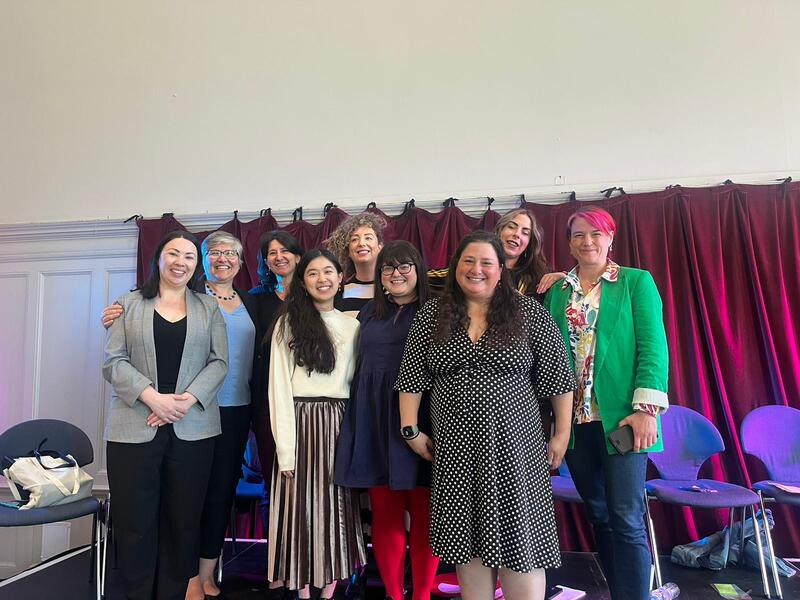
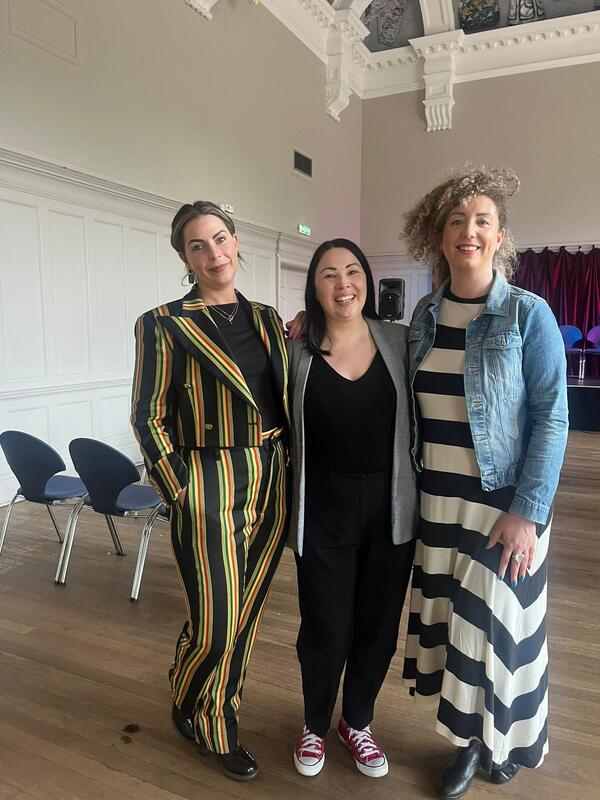
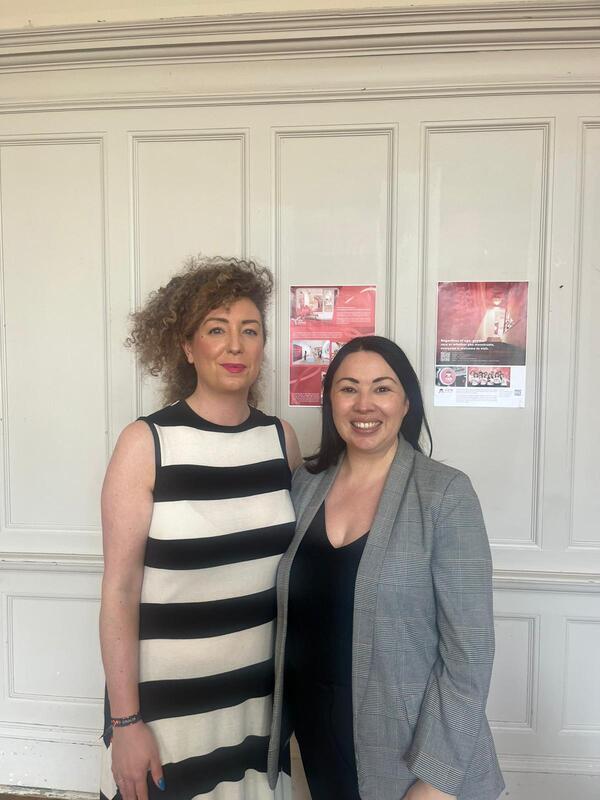
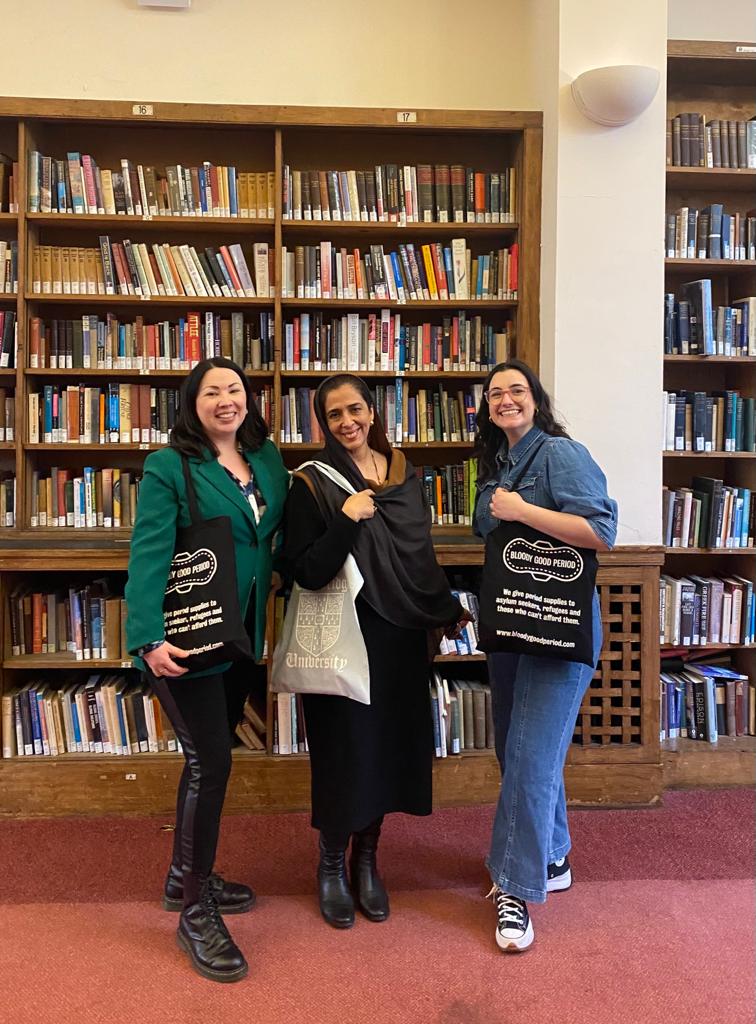
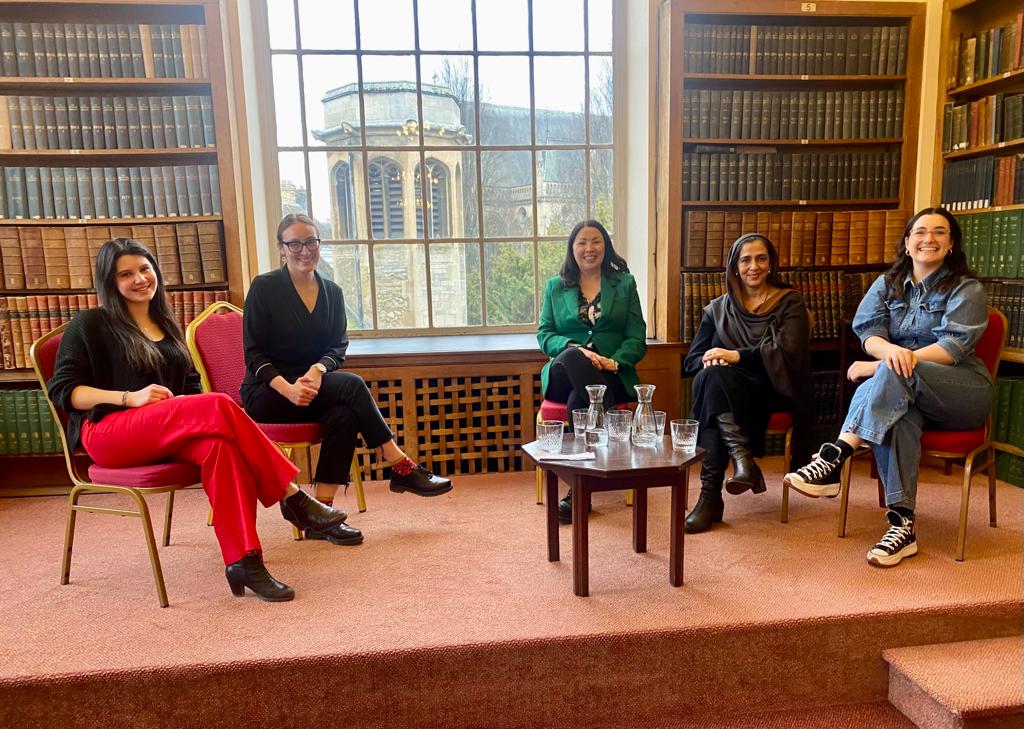
 RSS Feed
RSS Feed